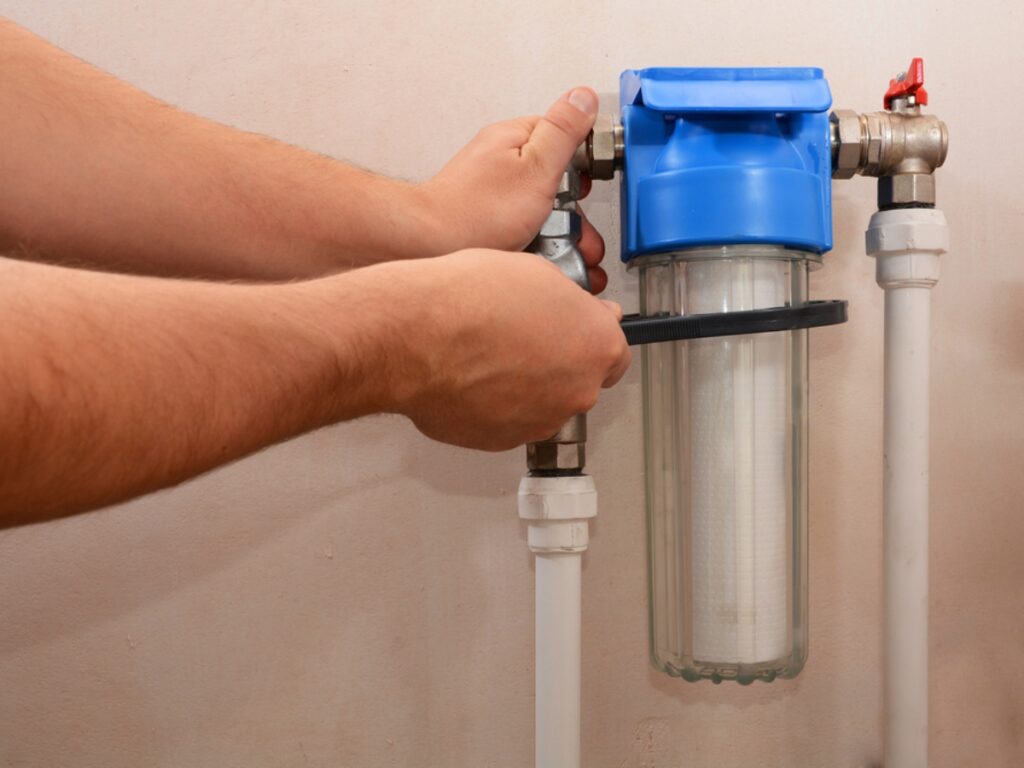Florida homeowners often face water quality challenges due to the state’s unique geography and climate. The high levels of minerals, sediments, and contaminants in Florida’s water supply can lead to hard water, bad taste, and potential health concerns. Choosing the right water filtration system is essential to ensure clean, safe, and great-tasting water for your household. In this article, we will explore the best water filtration systems for Florida homes and help you decide which one suits your needs.
Understanding Florida’s Water Quality Issues
Before selecting a water filtration system, it’s crucial to understand the common water issues in Florida. The state’s water supply comes from groundwater sources, lakes, and rivers, which can be susceptible to various contaminants, including:
- Hard Water: High levels of calcium and magnesium can cause scaling on appliances and plumbing fixtures.
- Chlorine and Chloramines: Used in municipal water treatment, these chemicals can leave an unpleasant taste and odor.
- Sulfur: This can cause a rotten egg smell in your water.
- Iron and Sediments: Can cause staining on sinks, bathtubs, and laundry.
- Bacteria and Microorganisms: Can pose health risks, especially in well water.
- Pesticides and Industrial Chemicals: Runoff from agricultural and industrial activities can contaminate the water supply.
To effectively address these concerns, choosing the right water filtration system is essential.
Types of Water Filtration Systems for Florida Homes
There are several types of water filtration systems available, each designed to tackle specific water quality issues. Here’s a breakdown of the most effective options for Florida homeowners:
1. Whole House Water Filtration Systems
A whole-house water filtration system is an excellent choice if you want to filter water for all household uses, including drinking, cooking, bathing, and laundry. This system is installed at the point where water enters your home and ensures that all taps deliver clean water.
Best for:
- Removing chlorine, sediments, and contaminants from all household water.
- Homes with well water that may contain bacteria or heavy metals.
Recommended Types:
- Carbon Filtration Systems: Ideal for removing chlorine, pesticides, and organic compounds.
- Sediment Filters: Help trap sand, dirt, and rust particles.
- UV Purification Systems: Effective in killing bacteria and viruses.
2. Reverse Osmosis (RO) Systems
Reverse osmosis systems use a multi-stage filtration process to remove a wide range of contaminants, including heavy metals, fluoride, and bacteria. These systems are typically installed under the kitchen sink for drinking and cooking water.
Best for:
- Homeowners looking for high-purity drinking water.
- Removing dissolved solids, lead, and nitrates from water.
Pros:
- Provides excellent water taste and purity.
- Removes up to 99% of contaminants.
Cons:
- Wastes some water during the filtration process.
- Requires periodic filter replacements.
3. Water Softeners
Florida’s hard water problem makes water softeners a popular choice among homeowners. These systems use ion exchange technology to remove calcium and magnesium, preventing scale buildup in plumbing and appliances.
Best for:
- Homes with hard water issues.
- Protecting appliances and plumbing fixtures from scale buildup.
Pros:
- Extends the lifespan of water heaters and plumbing.
- Improves soap lathering and reduces detergent use.
Cons:
- Does not remove other contaminants like chlorine or bacteria.
- Requires salt refills and periodic maintenance.
4. Under-Sink and Countertop Water Filters
For those looking for an easy and affordable filtration solution, under-sink and countertop filters are great options. These filters attach to a single faucet and are designed to improve the quality of drinking and cooking water.
Best for:
- Renters or homeowners who want a budget-friendly filtration system.
- Improving the taste and odor of tap water.
Recommended Types:
- Carbon Filters: Effective in reducing chlorine, lead, and volatile organic compounds (VOCs).
- Ceramic Filters: Remove bacteria and sediments while preserving beneficial minerals.
5. Well Water Filtration Systems
If your home relies on well water, a specialized filtration system is necessary to remove bacteria, iron, sulfur, and other contaminants.
Best for:
- Rural homes with private wells.
- Removing sulfur odors, iron stains, and bacteria.
Recommended Systems:
- Iron and Manganese Filters: Prevent rust stains and metallic taste.
- UV Water Purifiers: Kill bacteria and viruses.
- Multi-Stage Filtration Systems: Combine sediment, carbon, and UV filtration for comprehensive purification.
Choosing the Right Water Filtration System for Your Florida Home
Selecting the best water filtration system depends on your specific water quality concerns, budget, and household needs. Here are some factors to consider:
1. Conduct a Water Test
Before purchasing a filtration system, test your water to identify contaminants and determine the best filtration method. Many local water treatment companies offer free water testing services.
2. Determine Your Household Needs
- Do you need filtered water for the whole house or just for drinking?
- Are you dealing with hard water issues?
- Do you have specific contaminants that need removal?
3. Budget Considerations
Water filtration systems range from affordable countertop filters to high-end whole-house systems. Consider initial costs, maintenance, and filter replacement expenses when making your decision.
4. Maintenance and Longevity
Some systems require frequent filter changes, while others, like water softeners, need periodic salt refills. Choose a system that fits your maintenance capabilities.
Conclusion
The best water filtration system for your Florida home depends on your specific water quality concerns and household needs. Whole-house filtration systems provide comprehensive coverage, while reverse osmosis systems offer high-quality drinking water. Water softeners are ideal for combating Florida’s hard water problems, and well water users should invest in specialized filtration solutions. By testing your water and evaluating your needs, you can select a system that ensures safe, clean, and great-tasting water for your home.

